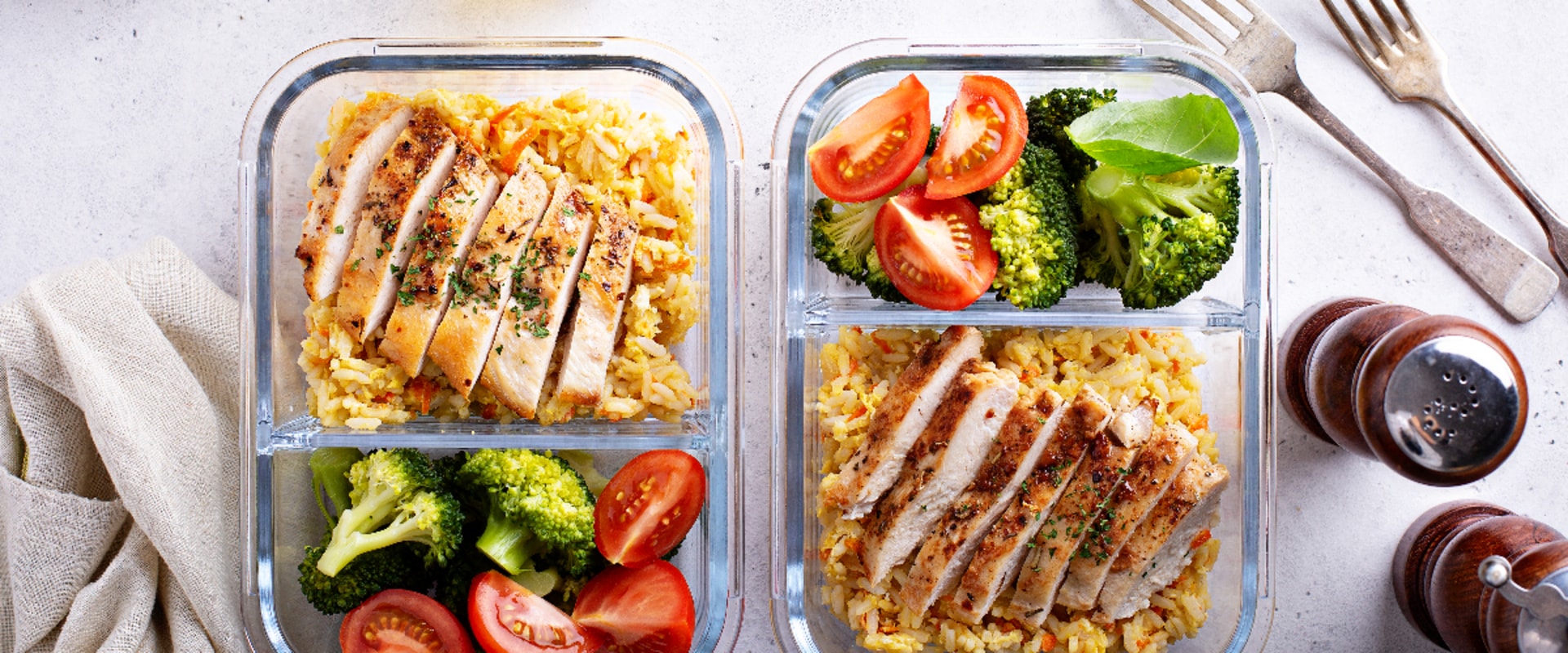Eating healthy can be a challenge, especially on a budget. With the rising cost of food, it can be hard to find ways to plan and prepare meals that are both nutritious and affordable. Thankfully, there are some simple strategies that you can use to help you create healthy meals on a budget. In this article, we'll discuss how to plan healthy meals on a budget, from shopping smartly to creating delicious yet affordable recipes.
Creating a Shopping List
Creating a shopping list is a key step in meal planning and budgeting.A shopping list helps you stay organized, stick to your budget, and buy only what you need. Having a list ensures that you don’t forget any items, and helps you avoid buying unnecessary items that could add up to more than your budget allows. When creating your shopping list, try to categorize items by store aisle or group them together by meal. This will help save you time when you get to the store, and make sure you don’t forget any items. Additionally, it is important to prioritize items on your list.
Start by selecting the most important ingredients for each meal, then move on to other ingredients like spices or condiments. This will help ensure you don’t go over budget. You should also consider the cost of each item before adding it to your list. If you find yourself buying a lot of expensive items, try opting for store brand products instead. Store brand products usually have the same quality as name brand products, but at a lower cost.
Budgeting for Groceries
Budgeting for Groceries is essential for creating healthy meals on a budget.Before you go shopping, it's important to set limits on how much you can spend and track your spending. This way, you can stay within your budget and make sure you're not overspending. To help you save money on groceries, consider shopping in bulk and using coupons when available. You can also stretch your grocery budget by using leftovers or buying cheaper cuts of meat. For example, using ground beef instead of steak will cost less and still give you a delicious meal. Another way to budget for groceries is to plan your meals ahead of time.
Make a list of ingredients for each meal, and then use that list to shop for the necessary items. This will help you avoid buying items you don't need and will save you money in the long run. Finally, don't be afraid to get creative with meal planning. Use what you have in your pantry or refrigerator and make a meal out of it. There are plenty of recipes online that can help you create healthy meals on a budget.
Meal Prepping
Meal prepping is an important part of eating healthy on a budget.It involves preparing meals ahead of time, either by batch cooking or pre-prepping ingredients, so that when it comes to meal time, you have easy access to healthy and affordable meals. This can save you both time and money, as you can avoid the temptation of unhealthy take-out or expensive restaurant food. Batch cooking is a great way to save time and money. By cooking large batches of food at one time, you can save yourself a lot of time throughout the week. This can include anything from cooked grains and proteins to prepared sauces, soups, and salads.
Pre-prepping ingredients is also a great way to save time while meal prepping. This involves prepping all the necessary ingredients for multiple recipes, so all you have to do when it comes time to cook is assemble the ingredients. Meal planning is also essential to successful meal prepping. Planning out your meals for the week ahead can help you create shopping lists that are tailored to the meals you want to make, helping you save money by only buying what you need. Additionally, it helps you avoid wasting food, as you can plan meals around ingredients that will be used up throughout the week. Finally, it's important to make sure you are preparing your food ahead of time.
This can involve pre-cooking or pre-prepping ingredients, but it can also involve simply making sure all ingredients are ready to go before you start cooking. This will save you time and hassle in the kitchen, as everything will be ready to go once you begin cooking.
Making Use of Seasonal Produce
When it comes to planning healthy meals on a budget, one of the best strategies is to take advantage of seasonal produce. Seasonal produce is often cheaper and more flavorful than out-of-season produce, making it a great option for sticking to a budget without compromising on flavor or nutrition. Here are some tips for incorporating seasonal produce into your meal planning.Shop at Local Farmers Markets
One of the best ways to get access to seasonal produce is to shop at your local farmers market.Not only can you find a wide variety of seasonal fruits and vegetables, but you’ll also be able to get them at a lower price than you would at the grocery store. Plus, you’ll be supporting local farmers and businesses in your community.
Find Recipes that Incorporate Seasonal Produce
Once you’ve purchased your seasonal produce, you’ll need to figure out how to use it. One way to do this is to search for recipes that incorporate seasonal ingredients. You can find a variety of recipes online or in cookbooks, and many will include seasonal produce as one of the main ingredients.This is a great way to make sure you’re getting the most out of your ingredients.
Choose Versatile Ingredients
When shopping for seasonal produce, look for ingredients that are versatile and can be used in a variety of dishes. For example, apples can be used in salads, desserts, and even savory dishes. This will help you get the most out of your ingredients and reduce food waste.Plan Ahead
Finally, it’s important to plan ahead when it comes to using seasonal produce. Make sure you know what’s in season and stock up when it’s available so you can use it throughout the year.You can also freeze or can any extra produce so you can enjoy it even when it’s out of season. In conclusion, meal planning and preparation can be tricky when you're trying to stick to a budget. But with a few simple tips and strategies, you can create delicious, nutritious meals without breaking the bank. Budgeting for groceries, creating a shopping list, making use of seasonal produce, and meal prepping are all great ways to plan healthy meals on a budget.







